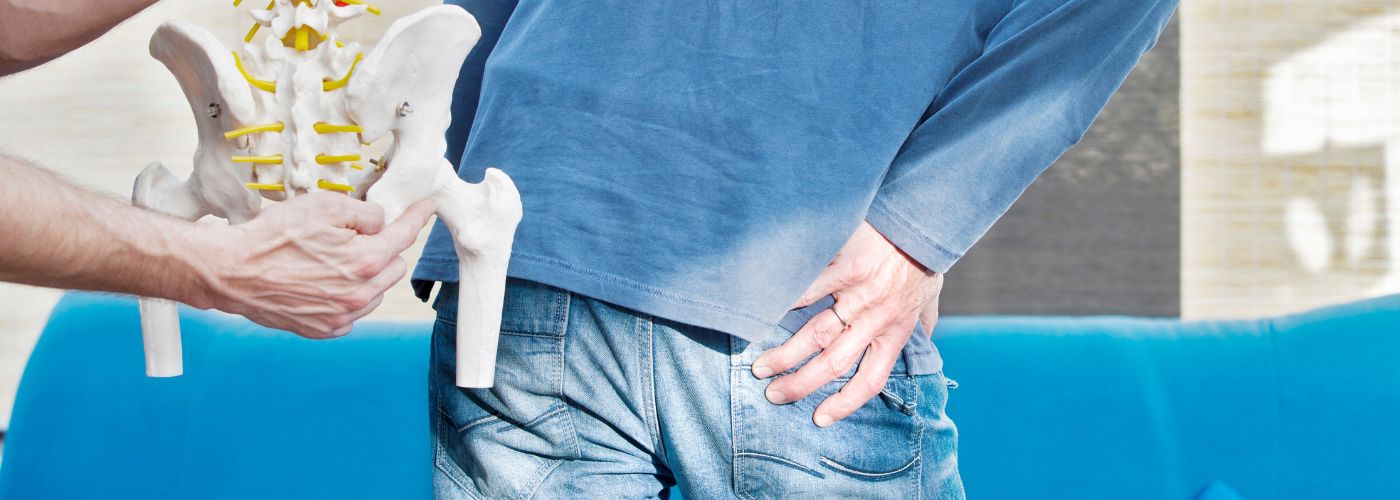Hip pain is a common problem that affects millions of people worldwide. Fortunately, there are many ways to manage and alleviate hip pain. From lifestyle changes to medical treatments and exercises, there are various strategies you can use to improve your symptoms and regain mobility. In this blog, we’ll explore some tips for dealing with hip pain that can help you get back on track and live a more comfortable life.
Causes For Hip Pain And How To Treat It

Hip pain can range from mild discomfort to severe, this pain limits mobility and daily activities. Understanding the underlying causes of hip pain is crucial in managing and treating this condition.
There are many potential causes of hip pain, including injuries, overuse, arthritis, bone fractures or tumors, bursitis, tendonitis, nerve impingement or damage, and even referred pain from other areas such as the lower back.
Depending on the cause of the pain and its severity, treatment options may vary significantly. That’s why it’s extremely important to visit a doctor if experiencing severe pain. A doctor will be able to find the root cause of the issue and treat it accordingly.
One popular non-invasive and natural treatment for hip pain is TENS & EMS Therapy Devices.
TENS and EMS therapy are two different types of electrical stimulation therapies that are commonly used to alleviate pain and muscle discomfort potentially. TENS or Transcutaneous Electrical Nerve Stimulation is a non-invasive therapy that uses low-voltage electrical currents to relieve pain potentially. It works by attaching nodes to the affected area, limiting nerve pain receptors from reaching the brain.
This type of therapy works by stimulating the sensory nerves, which reduces the pain the patient feels.
On the other hand, EMS or Electrical Muscle Stimulation, is a form of therapeutic treatment that focuses on stimulating muscles through an electric current. This therapy aims to improve muscular strength and endurance while reducing fatigue and promoting muscle recovery.
The electric currents used in TENS and EMS therapies can be delivered via electrode pads placed on specific body areas. TENS and EMS therapies have been known to treat conditions such as hip pain, chronic back pain, arthritis, sports injuries, and even menstrual cramps.
TENS and EMS therapy devices are typically used as supplementary treatment and should not be used as the main treatment for the root issue.
Can Exercise Help With Hip Pain?

Exercise has been shown to have numerous benefits for those suffering from hip pain. One of the most important benefits is improved flexibility and range of motion in the hip joint.
This may help reduce stiffness and discomfort, making it easier to move around without experiencing pain. Exercise may also help strengthen the muscles surrounding the hip joint, which provides additional support and stability.
There are several types of exercises that can be particularly beneficial for those with hip pain. Stretching exercises like yoga or Pilates can help increase flexibility and reduce stiffness in the hips.
Low-impact exercises like swimming or cycling can provide cardiovascular benefits without putting excessive strain on the joints.
Where Is Hip Pain Usually Felt?

One of the first steps in treating hip pain is to identify where it is coming from. The location of the pain can provide important clues as to what might be causing it.
The most common area where hip pain is felt is in the groin region. This is because the hip joint itself sits deep in this area and any problems with the joint, such as arthritis or a labral tear, can cause discomfort here.
However, hip pain can also be felt on the outside of the hip or even down into the thigh. These areas are often affected by conditions like bursitis or tendinitis.
Regardless of where your hip pain is located, it’s important to seek medical attention if you’re experiencing ongoing discomfort. Always speak with a doctor if your hip pain is putting a strain on your overall health.
What Type Of Doctor Do You See For Hip Pain?
If you are experiencing severe or persistent hip pain, it is advisable to consult a doctor who specializes in orthopedic medicine. Orthopedic doctors specialize in the treatment of injuries and disorders related to the musculoskeletal system including bones, joints, muscles, tendons and ligaments.
They can diagnose the cause of your hip pain through physical examination and diagnostic tests like X-ray imaging.
Another type of doctor that treats hip pain is a rheumatologist. Rheumatologists are specialists in diagnosing and treating conditions that affect the joints, such as arthritis and other autoimmune diseases.
These doctors may be able to tell you more about your hip pain before it becomes an issue with your health.

Related Stories
When Courage Takes Flight: Lessons From a Women’s Skydiving Record Attempt
Photo by Taylor Buffington (T-Buff) We went to Eloy, Arizona on a mission — to...
Nov
Sciatica: 1, LeBron: 0 (For Now)
File photo: LeBron James #6 of the Los Angeles Lakers. (Photo: Thearon W. Henderson /...
Oct
Pickleball vs. Tennis: The Science of Recovery
For years, tennis was the stand-in for movement: endurance, coordination, and power all at once....
Oct
5 Ways to Support Bone Strength with HiDow
World Osteoporosis Day (October 20) October 20 is World Osteoporosis Day, and chances are, you’ve...
Oct
FDA-Cleared Is a Flex. Here’s Why.
Pulling Back the Curtain You’ve seen it on boxes, on websites, in ads: FDA-cleared. It...
Sep
This Is Fibro. This Is Larry.
September is Pain Awareness Month. And we’re not here to give you medical definitions or...
Sep